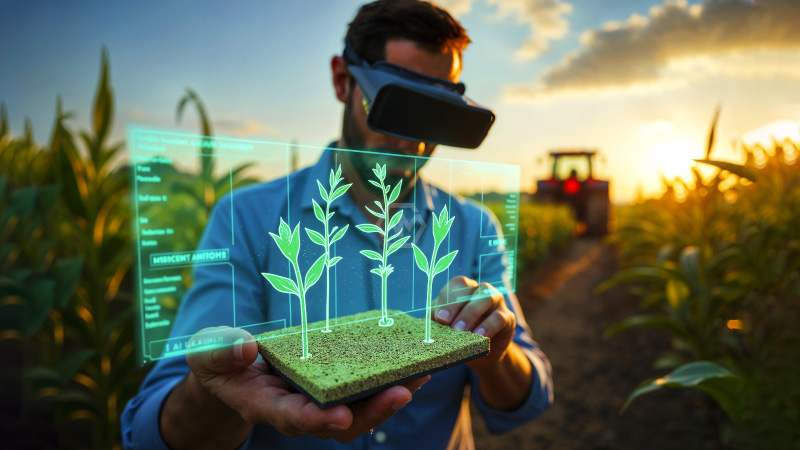- Dutch agriculture faces growing threats from drought, salinisation, and extreme weather.
- Tools like the Climate Stress Test help farmers adapt economically and ecologically.
- Regional collaboration is essential for building long-term climate resilience.
Dutch farmers are already contending with the early impacts of climate change, particularly drought and shifting soil conditions. As water availability becomes more unpredictable, the number of viable locations for traditional crops shrinks.
Beyond individual farms, sustainable agriculture requires a systemic approach. Collaboration with local governments, conservation groups, and financial institutions is critical to adapt the broader landscape.
Faming Smarter: Preparing Agriculture for 2050 and Beyond
Climate change is reshaping where and how crops can be grown. For instance, in the Netherlands, rising salinity and declining water tables are forcing farmers to relocate certain types of agriculture. These include onion farming, which now has to be moved to regions with more favorable conditions. Additionally, the variability in soil types, like sandy versus clay, adds further complexity to water management and crop planning.
Wageningen University’s Climate Stress Test provides farmers with concrete financial insights. This is achieved by simulating the effects of inaction versus various adaptive measures. Consequently, the tool encourages long-term thinking. It shows how resilience strategies, like precision irrigation or organic soil enhancement, can secure both yields and profits.
The European initiative Climate Farm Demo serves as a living laboratory. Over 1,500 demo farms, including many from the Netherlands, test and share innovative climate adaptation practices. These demonstrations not only raise awareness but build a community of knowledge exchange. This is particularly beneficial between northern and southern European farmers.
The Agriculture Climate 2050 project broadens the lens by including input from a wide range of stakeholders, not just farmers. The scenarios developed focus on how to sustainably integrate farming with water systems, urban development, and natural ecosystems. The goal is to ensure a food-secure future that balances environmental protection and agricultural productivity.
Securing the future of agriculture will depend not only on innovation at the farm level. It also requires shared responsibility, coordinated planning, and a deep commitment to adaptation.
“The ultimate test of man’s conscience may be his willingness to sacrifice something today for future generations whose words of thanks will not be heard.” — Gaylord Nelson



